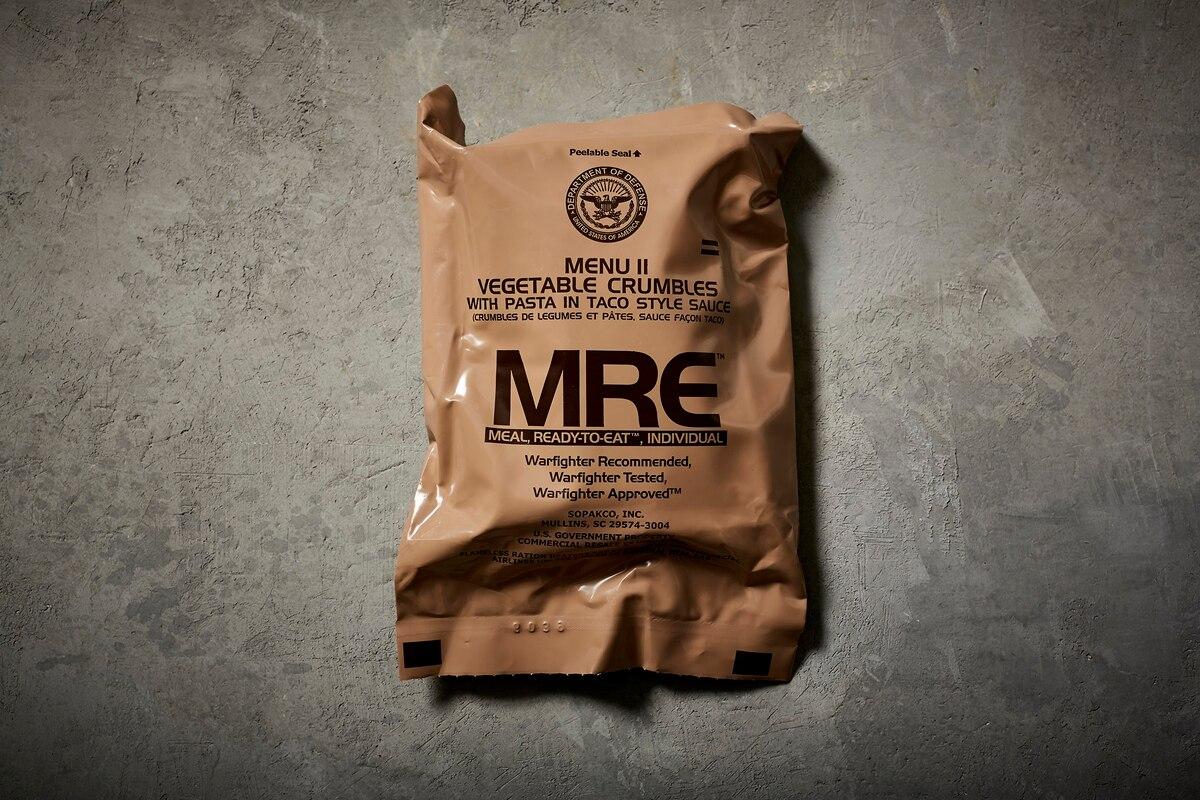
The Journal of Nutritional Biochemistry study featured over 60 volunteers from military and civilian backgrounds who, over a period of 21 days, provided gastrointestinal data to the U.S. Army Research Institute of Environmental Medicine.
Volunteers were divided into two groups; one cohort was instructed to brave an MRE-only regimen of two to three meals per day, while the other was directed to maintain a normal diet of relatively equal caloric intake. Meal types were tailored to each participant to avoid significant weight fluctuation, and both groups were asked to maintain a preestablished level of physical activity.
To wash the meals down, MRE participants were asked to stick to water only, or, “if desired,” spoil themselves with a daily allowance of two to three cups of black coffee.
Participants documented their 21-day trial using food logs that were reviewed by the researchers, who also collected fecal, blood, and urine samples to study the diet’s impacts on intestinal health. Data was analyzed over a two-year period from 2015 to 2017.
At the conclusion of the three weeks, the authors reported that participants in the MRE group averaged one fewer bowel movement per week than the non-MRE group, a moderate vindication of every Meal, Refusing-to-Exit joke ever made on field ops or deployments.
This intestinal traffic jam, the authors concluded, is largely attributable to the MRE’s lack of good bacteria found in the sort of fresh foods, such as fruit or yogurt, that provide the extra nudge the bowels need for a satisfactory release.
The brown bags so familiar to every service member are instead packed with foods that can withstand the harsh environments personnel routinely occupy. Each MRE contains “an entrée, a starch, a spread (cheese, peanut butter, jam/jelly), a dessert and/or snack, a beverage powder, instant coffee or tea and chewing gum,” the study’s authors wrote. These items, on average, yield about 1,300 calories and 12 grams of fiber.
Despite the strict diet of non-perishable MRE items contributing to fewer bowel movements — defecation reportedly returned to normal once participants resumed their regular diet — participants in the MRE group fared just as well as their non-MRE counterparts when it came to gastrointestinal health.
Gastrointestinal discomfort can often be the product of high stress, dehydration, or even hygiene, environmental factors experienced by any service member who has found themselves in harsh surroundings, study author Dr. J. Philip Karl told Stars and Stripes.
In the more controlled environment of this study, meanwhile, gastrointestinal irritation or inflammation was indistinguishable between groups.
According to Karl, these findings are likely indicative of an American diet increasingly devoid of fresh foods.
“Americans tend not to eat enough fruits, vegetables and whole grains,” Karl told Stripes. “The MRE actually provides more fiber and more of several vitamins and minerals compared to people’s typical diets. ... I think MREs get a bad rap."